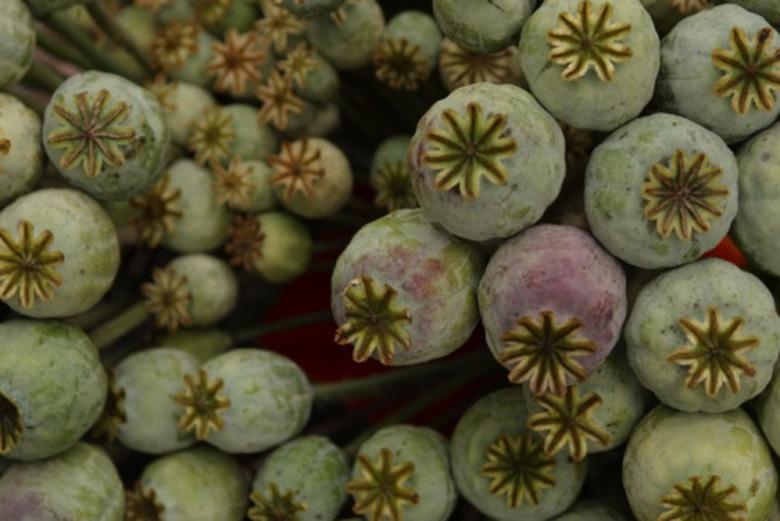Can You Grow Poppy Plants From Grocery Store Poppy Seeds?
Annual bread-seed or lettuce-leaf poppies (Papaver somniferum) produce flat, tissue-papery blooms in shades of pink, red, purple and white. They grow 4 to 5 feet tall, with lush, pale green foliage that stands upright from the stalk. These are the same poppies that are the source of opium and it is illegal in the United States to grow them for that purpose.
Colors
Colors
While specific strains, such as Lauren's Grape (purple), Danish Flag (deep orange with white feathery centers) and peony poppies (multiple petals in jewel tones) are offered in commercial seed packages, grocery-store poppy seeds grow just as well, although in limited colors and types. Most produce a single pink poppy flower.
Timing
Timing
Annual poppies grow best if they get a period of cold, so it is often recommended that they be planted in fall or sprinkled on the snow. However, especially in areas with wet winters and cold springs, planting in mid-February yields better results.
Planting
Planting
Scatter the seeds on the ground and do not cover them, as sunlight is needed for germination. If your climate is dry, keep the seeds moist with a fine spray from the hose until they come up. When the plants are about 3 inches tall, thin out any crowded clumps.
Gathering Seeds
Gathering Seeds
Poppy flowers last only a few days. After the petals drop, the poppy seed heads will begin to dry. Leave them on the plant until the stalks have turned beige and the slits at the top of the poppy pod have opened to release the seeds. Gather the heads and let them dry completely, then shake out the seeds.
Replanting
Replanting
Many of the seeds will fall to the ground and plant themselves, but save some seeds to scatter again in spring, especially if the grocery-store seeds yield any unusual colors or forms that you wish to grow again.
